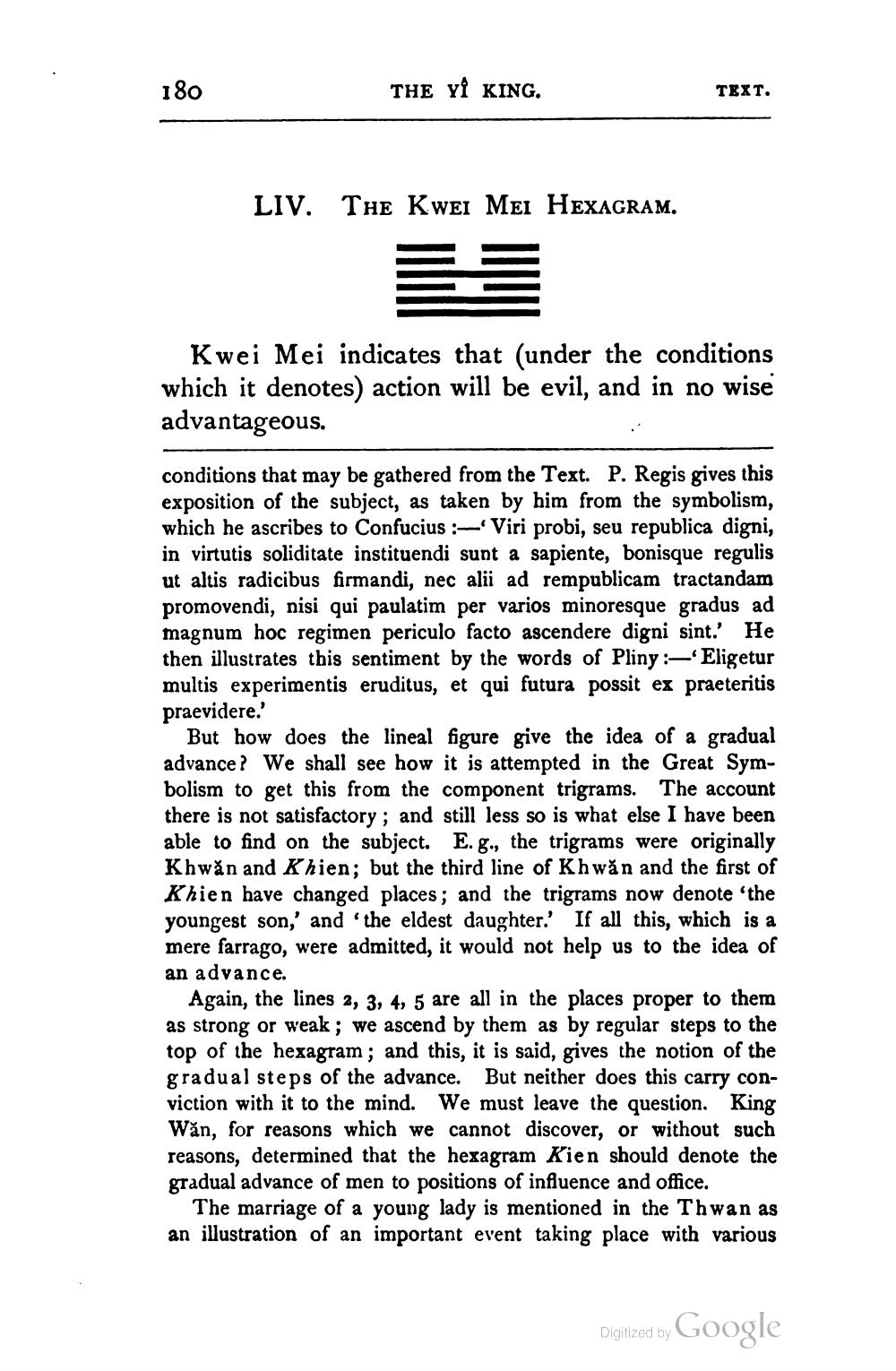________________
180
THE YI KING.
LIV. THE KWEI MEI HEXAGRAM.
TEXT.
Kwei Mei indicates that (under the conditions which it denotes) action will be evil, and in no wise advantageous.
conditions that may be gathered from the Text. P. Regis gives this exposition of the subject, as taken by him from the symbolism, which he ascribes to Confucius :-'Viri probi, seu republica digni, in virtutis soliditate instituendi sunt a sapiente, bonisque regulis ut altis radicibus firmandi, nec alii ad rempublicam tractandam promovendi, nisi qui paulatim per varios minoresque gradus ad magnum hoc regimen periculo facto ascendere digni sint.' He then illustrates this sentiment by the words of Pliny:-'Eligetur multis experimentis eruditus, et qui futura possit ex praeteritis praevidere.'
But how does the lineal figure give the idea of a gradual advance? We shall see how it is attempted in the Great Symbolism to get this from the component trigrams. The account there is not satisfactory; and still less so is what else I have been able to find on the subject. E. g., the trigrams were originally Khwan and Khien; but the third line of Khwăn and the first of Khien have changed places; and the trigrams now denote 'the youngest son,' and 'the eldest daughter.' If all this, which is a mere farrago, were admitted, it would not help us to the idea of an advance.
Again, the lines 2, 3, 4, 5 are all in the places proper to them as strong or weak; we ascend by them as by regular steps to the top of the hexagram; and this, it is said, gives the notion of the gradual steps of the advance. But neither does this carry conviction with it to the mind. We must leave the question. King Wăn, for reasons which we cannot discover, or without such reasons, determined that the hexagram Kien should denote the gradual advance of men to positions of influence and office.
The marriage of a young lady is mentioned in the Thwan as an illustration of an important event taking place with various
Digitized by
Google




